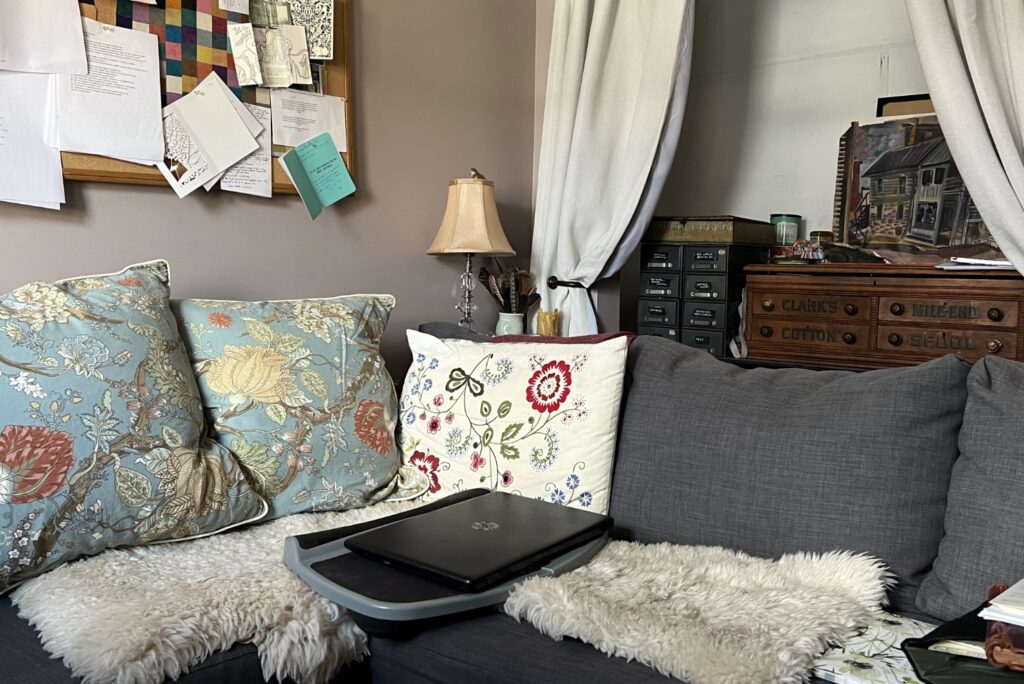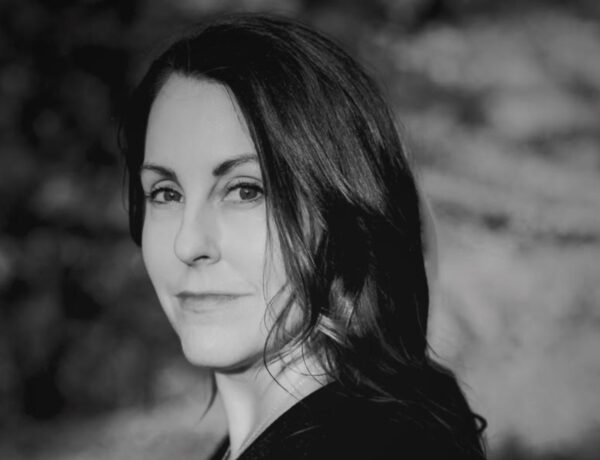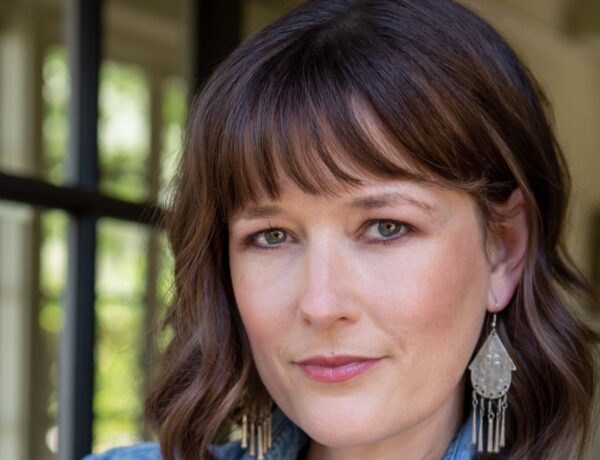Naeem Murr, a dual US and UK citizen, is the author of three novels, The Boy, which was a New York Times Notable Book, The Genius of the Sea, and most recently Perfect Man, which was awarded The Commonwealth Writersʼ Prize for the Best Book of Europe and South Asia, and was long-listed for the Man Booker Prize.
His work has been translated into many languages. He was a Stegner Fellow at Stanford University and has been awarded a Lannan Residency Fellowship, a Guggenheim Fellowship, and a PEN Beyond Margins Award.
Each week, we publish a new daily writing routine from a famous author. Subscribe to our newsletter so you don’t miss out!
Hi Naeem, welcome to Famous Writing Routines, we’re so glad to have you here with us today! Your 2007 novel, The Perfect Man, was awarded the Commonwealth Writers’ Prize and was longlisted for the Man Booker Prize. Can you take us through the process of writing this book?
This novel was inspired by place. I was living in Columbia, Missouri, for a while, and often hiked along the banks of the river in the floodplain along the bluffs. On one of these hikes I discovered an area of abandoned homes, still full of furniture and children’s toys.
Trying to imagine what had happened to those lives led to me imagining the characters in a novel set in a small Missouri town called Pisgah during the 1950s and ‘60s. I imagined a young Indian boy, an outsider, turning up in this town. For me, fiction is character-driven, and once those characters take on a life of their own the story emerges out of who they are, their longings and predicaments.
Books can be hard to write or can come (relatively!) easily, as a kind of gift. I think the ones that come easily, as The Perfect Man did, do so because they’ve been gestating for sufficient time. For many years I’d planned to write a book set in the large block of flats where I grew up in a working-class part of London. Between other projects, I would find myself scribbling notes and lines for that book.
I even had a title for it: Whatever Happened to the Boys. It was always with me, lying just beneath the surface. Years after The Perfect Man had been published, I realized that it was the same novel, somehow translated from a block of flats in London to a small town in Missouri.
How did being a part of the Man Booker Prize longlist impact your writing career and your confidence as a writer?
It feels disingenuous to say hardly at all, but that is the answer that seems truest to me, certainly in that instance. I’ve not had great luck with the publishing industry. Everyone—editors and writers—have suffered from the upheavals of the last few decades.
I do have writer friends who have managed to maintain the same editor over several books, but I have never once had the editor who bought my novel still working at the publishing house by the time the novel came out. Every novel was orphaned, which has an irony to it, since I often write about orphaned and abandoned children.
When the novel came out in England with Heinemann, it had such a small print run that when it was long listed for the Booker and short listed for the Commonwealth prize, readers couldn’t get hold of it for many weeks. I don’t feel angry or bitter about it; it was just an unfortunate circumstance.
I think people often believe that publishing a book or receiving a prize will change everything, but the most important thing for any writer to know is that all you really have power over at any time in your career is the truth and quality of what you write.
Your novels, The Boy, The Genius of the Sea, and Perfect Man, have all been widely praised and translated into several languages. What inspires you to write and what themes do you often explore in your work?
Life in the block of flats where I grew up was porous in a way that life doesn’t seem to be for many children anymore. We knew everyone in the block, and everyone’s business, the children constantly in and out of each other’s homes. There were a lot of immigrant and single parent families, a lot of brutish, violent men, alcoholics, old people eking out an existence on a tiny pension.
As a child I was fascinated by all these iterations of humanity and home, fascinated by people. This is why I love writers who write out of character and who have an ultimate sympathy for our shared human predicament, rather than those for whom the world is comic (which has nothing to do with whether the writing is funny or not). The latter is a far more pessimistic attitude, focusing on humanity as incorrigibly corrupt, best dealt with at the distance of satire.
I was brought up by my Irish mother, an astonishing woman who worked three jobs to keep my brother and me fed and safe. She’d had an Angela’s Ashes kind of childhood in Ireland, and never spoke about it. But I think a child can always sense in some inchoate way what lies behind a parent’s silence, and I believe it was out of that silence that I wrote—to somehow articulate it. And, of course, there was a larger silence to fill. That of my Palestinian/Lebanese father, who’d died when I was a child. Currently I’m working on a long historical novel covering the life of a Palestinian man, from 1938 in Haifa to 2008 in San Francisco.
Discover the daily writing habits of authors like Stephen King, Neil Gaiman, and Gillian Flynn with Famous Writing Routines Vol. 1 and learn how to take your writing to the next level. Grab your copy today!
You’ve been a Stegner Fellow at Stanford University, a Lannan Residency Fellow, a Guggenheim Fellow, and a PEN Beyond Margins Award recipient. How has this recognition impacted your writing career?
I’ve talked a little about this in my answer to the first question, so I’ll approach the answer here from a different angle. What you need as a writer, particularly of novels, is time. Enough time that a novel can truly and deeply live in you. Where you are so absorbed that every fragment of conversation, every book you read, every trip you take prompts you to write another line or scene in your novel. This is so much harder for writers now.
For one thing writers aren’t receiving the advances they used to. It is only a very lucky few who don’t have to teach full time or do other work. The other issue is the information age. Kafka said, “Evil is whatever distracts,” and we now live in a world infested with distractions. The Stegner Fellowship gave me two years of writing time. The Guggenheim Fellowship is a full year away from teaching. The wonderful Lannan residencies in Marfa provided a house, a car, an income, and unfettered time to write. There is nothing more valuable.
As a writer, what does a typical day look like for you? Do you have any specific rituals or habits that help with your creative process?
I have friends who can write most days around all their other work and responsibilities. Unfortunately, I’m someone who has to focus absolutely on whatever I’m doing. If I’ve undertaken a manuscript consultation or I’m teaching, I put my best self into those things.
This is why I’ve tried to organize my life so that I have blocks of extended time—a week or two—to work on my writing. When I do have that time, I wake up at four or five in the morning (as I always do), and begin writing immediately, with the first of my four small cups of tea.
I set a timer and after about 40 minutes of writing, I take a break, complete a ten-minute exercise routine, make another cup of tea, and then start work again. Generally, I can work until about ten or ten thirty in the morning. After that I’m punishing myself. At this point I go for a run, and it is often during that run that my best ideas come to me.
I should say that if I’m creating something—a first draft—then I can only work for a few concentrated hours before I’m exhausted. When I’m revising, particularly late in that process, I can work for much longer.
If you could have a conversation with any author throughout history about their writing routine and creative process, who would that person be?
That’s a tough one. Right now, it would be Alice Munro. I read somewhere that she wrote short stories in part because her life was so busy, with three daughters and a bookstore to run. I’ve only written a few stories, and they’re all long. She has that obsessive interest in the lives of others that marks a great writer for me, and I love the atypical architecture of her stories.
Like a number of writers I admire (Elizabeth Bowen, Nadine Gordimer, Mary Gaitskill), she tends to write intimate stories from a narrative remove. At times it feels like an almost forensic interest in the deep psychological mechanisms that manifest themselves in the bad choices we make. Like the other three writers I mentioned, Munro’s prose is also beautiful and precise. She has developed the perfect tool for her cool, incisive eye.
I’d love to know about the books you’re reading at the moment. What have been some of your favorite reads?
Most of the books I’m reading currently are for research on my most recent novel—history and translated memoirs. For my teaching I often read story collections. Someone recommended Viet Tanh Nguyen’s The Refugees, and I loved a number of stories in that collection, particularly “The Other Man.”
Currently I’m moving back and forth between Henry James’ The Bostonians and Virginia Woolf’s last novel, The Years (having recently finished Between the Acts). I’ve read most of James’s novels and I have to admit that I’m not finding The Bostonians as engaging as some of his others, though I love his brilliant character descriptions (an increasingly lost aspect of the art).
I think most people regard The Years as a failed book, though it was Woolf’s most popular novel while she was alive. I’d avoided it because several people warned me away, but someone whose taste I trust said that it has a wonderful ending. I love Woolf’s formal experimentation, how vividly and intimately she enters her characters, and the virtuosity with which she moves between them.
What does your current writing workspace look like?
I’m not at all precious about my workspace, except that I need it to be quiet. It’s a small room at the back of my apartment containing bookshelves and a couch. I write with my legs up on the couch, laptop in my lap.

Affiliate disclaimer: Some links on this website are affiliate links. We may earn a small commission if you make a purchase through these links, but only promote products we truly believe in. We disclose affiliate links and give honest reviews.



No Comments